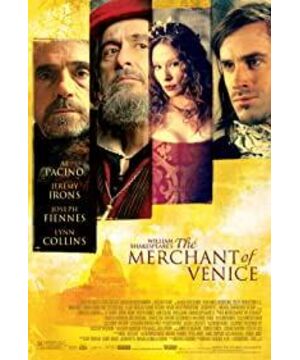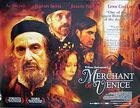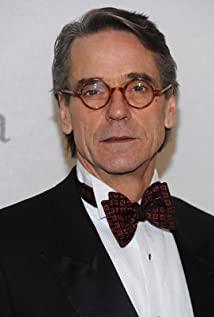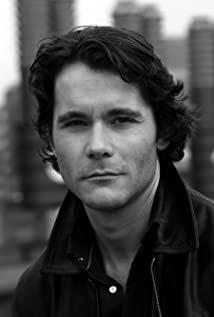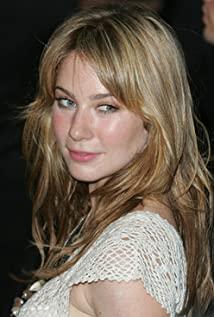1. Not very relevant to the movie
1. I want to openly tell the story of my initial impression of the "Merchant of Venice"-Sherlock was persecuted for no reason, and I don’t see the slightest commercial civilization here. And the spirit of contract.
I learned this story from my textbook when I was in middle school. At that time, I couldn't take any interest in praising Portia's description of "kindness". Later, after reading the entire script, knowing the outline of the story, I was even more indignant about what happened to Sherlock. Let's see, this, how self-proclaimed benevolent Christians (including the crowd of onlookers in the story, Shakespeare himself and his contemporaries) can reverse black and white and persecute a Jew who enjoys second-class civil rights.
Take away his dignity, take away his money, take away his fairness, take away his daughter, take away his faith, is there anything these majorities can't take away?
Although in the history books, capitalists have progressive justice relative to feudal landlords, and fulfilling contracts possess social justice relative to breaking promises, but in microscopic events, all we can see is the justice of the majority to the minority.
2. Thanks to Ann Rand, what I mean is the book "Atlas Shrugged" (hereinafter referred to as "A"), telling me that selfishness is not a mistake,-"Everyone is oneself, God is Everyone", "people don't die for themselves." Maybe we don’t have to say things so decisively, sing the praises of capitalism, or tell ourselves that we must turn to another worldview.
I think there is no doubt that "A" has clarified to me a truth that has always been obvious: those who create the world are qualified to enjoy it, those who create wealth are qualified to control it, and those who create wealth also do it. The weak provide shelter to help the world escape the boring emptiness.
This truth can't be more obvious, but we always inadvertently curse wealth and labor viciously in our hearts (I'm not simply talking about hatred of the rich).
We praise the art and morality in this world, and praise the clear laws found in nature and prescribed by mankind. We wander in the ocean of sentiment and beauty, spurning every gold coin that is born with blood. I clearly remember a piece of Yu Guangzhong’s "Escape
" that I liked when I was in high school, "That was the age of innocence, when the saint was not born, and the blue ox did not go west. That was the age of bronze, Yunmeng’s malaria was not opened, and the fish and dragons abide by it. The order of Dayu, the flute-speakers of Wu City were not white. It was the age of polytheism, the age of the Han people who could sing, the age of Umeno and vines, and the age of free love. The age of happy Pre-Confucian.” I am intoxicated. In the classical world, the pursuit of true beauty, clean and without any surprises.
However, this is a kind of harm to the real world. The real world is built on the sleepers of train sleepers and entrepreneurs. Poets and composers have received a little alms, but instead they curse the sleepers and sleepless nights, cursing the safe acquisition of wealth.
Yes, until I saw "Ann", I didn't realize that this situation was so absurd, and only then did I understand how the truth was like a bright moon, but was abandoned like a shoe.
Sherlock worked hard, lending, collecting profits, saving money, and abiding by the law. As an early financial practitioner, he promoted Venice to become the jewel of the world at that time. Thousands of Sherlocks are busy and toiled, running around, allowing Columbus and Magellan’s ships to connect the world, turning Watt’s steam engine, allowing Bell’s radio communication, allowing the torrent of capital and technology to sweep the world, bringing humanity in history. The greatest benefit they get is that they have wealth.
What are the Bassanio doing? Nostalgic for a dinner party that sells gold and silver, prostitutes' skirts, noble music, and contempt for wealth creators? Who lends you money to let you marry a pretty girl? Who scrupulously abides by poverty and accumulates family business? From this point of view, Sherlock is the same as the workers in the sweatshop. They have also put in labor and effort, but they have been harvested. This is not a contradiction between the bourgeoisie and the proletariat. It is a contradiction between the conscientious and hard-working people.
By the way, let’s talk about Liu Zhijun. Yes, I didn’t make a mistake. It was Liu Zhijun, the former Minister of Railways. Similar to "Ann", the subject is all about railways. It is the story of the masses fighting against the more advanced railways, adding the worries about disasters, lace news, jailed, and humiliation. Fortunately, the real world is not a novel, and the actions of Liu Zhijun and the protagonist in the novel are very different. However, just by discussing the railway construction itself, we can see our deception.
When the high-speed rail was launched, public opinion was against it. The reasons were the hidden safety hazards caused by the speed increase and the dissatisfaction with the superior resources of the Ministry of Railways. In particular, the train accident caused the Ministry of Railways' reputation to drop to zero, and the high-speed rail was once stagnant. This is a well-known past event. But looking around us now, high-speed rail has become an indispensable element. Its convenience, comfort, safety, and speed have won praise from passengers.
Haven't we found this inconsistency and contradiction with ourselves? Even after realizing this situation, we began to look at the problem in two ways: the problem and corruption belonged to Liu Zhijun and the Ministry of Railways, and the convenience of high-speed rail and the world's number one mileage achievement belonged to all of our people. When Liu Zhijun was tried, no one cared about his contribution to the high-speed rail business. Anyway, he was already a prisoner. What we were most interested in was how many billions he had embezzled, and how many lacy news about his mistress and his wife. Is the world concealing the noble character, or are we destined to like vulgarity and boring?
When Lorenzo, who had abducted Sherlock's daughter, talked about music to Moonlight, he didn't know if he realized his own abomination.
3. I must talk about universal values. Should there be some norms that can be applied to the present or ancient times, can be applied here or there, can be applied to me or you, whether I am a man or a woman, I am beautiful It's still ugly, rich or poor, righteous or evil, the majority or the minority.
If there is such a thing, I would call it universal value. If we agree that fairness, justice, and contracts are universal, then we should unconditionally recognize their authority, and prevent them from being obscured by aggressive questioning and specious arguments, and not let "kindness" and conscience make them lose their power. .
Sorry, the example I want to cite this time is the Xia Junfeng case. This case has been extremely curious under the exaggeration of officials, promoters, media, and different opinions. It is said that the higher level of the debate about it is about the so-called "reasoning in the guest", that is, rational, neutral, and objective. Those who support Lizhongke believe that this is the prerequisite for universalizing everything. The opponents believe that supporting Lizhongke when the strength is clear and the good and the evil are distinct is evil in itself, because the weak do not have the energy and time to be questioned and criticized.
So where is the universal value here? Is it "good"? Goodness itself is very ambitious, it can only be a purpose, it cannot ensure its own universality in methods. If we protect the weak without questioning, should we assume that there is a good that is higher than the universal value? Can good and evil transcend fairness and truth? I do not think so.
Regarding Sherlock's case and Shakespeare's novels, some speakers think that we should return to the historical background to understand,-such a story was indeed a normal comedy at the time, but I can't understand it. I agree that Shakespeare has the right to create and understand the anti-Semitism of 16th-century Christians, but I do not agree that Shakespeare is kidnapped on the basis of the interpreter’s own understanding. I also disagree that Shylock deserved the crime in the context of the story at the time. I think he It should be completely reversed. The topic of anti-Semitism is boring and heavy. The new interpretation of this film also reflects the progress of modern people. However, anti-Semitism should not be taken for granted at the time, and the breach of contract should not be protected by mercy. Those who dare to establish a contract should There should be an obligation to fulfill the contract. This is a clear and unmistakable truth.
How can you keep yourself as a slave but condemn others for not understanding kindness?
This is universal value.
Second, it is more relevant to movies.
1. Furiously praise Al Pacino, one of the greatest orators in film history, one of the most varied role players, and one of the deepest bones of old drama. Neither the godfather nor the smelling of the fragrance of women. In this movie, his twinkling eyes, slouchy standing, one high and one low shoulder, two bitter tears and a speech on equality in court, he closed after watching the film. The upper eyes can't erase his charm.
While watching this movie, I tried to find the personable and quiet shadow into the sea, but I only saw Sherlock who shimmered and hid, and occasionally picked up like a poisonous snake.
All praise belongs to you.
2. Seeing this movie, it is inevitable to want to compare it with the "Les Miserables" I watched a while ago. Unfortunately, "Les Miserables" really lacks the thickness and richness comparable to it.
Regarding the original works of "The Merchant of Venice" and "Les Miserables" alone, even if there is a saying that there is no such thing as the first and the second, there is no doubt that "Les Miserables" should win. Hugo writes a book, just like writing a scripture with the tip of his tongue. "The Merchant of Venice" is indeed a classic and good story, but it is inferior to "Les Miserables" in terms of boldness, plot, and knowledge.
But when it comes to movies, "Les Miserables" has a thin portrayal of characters, a simple presentation of the French Revolution, and the effort of the actors. It is difficult to compare with "The Merchant of Venice". It's a pity that Al Pacino is getting old, otherwise the lead role of Jean Valjean may be able to add some points to "Les Miserables".
3. Finally, talk about girls.
Among a group of stupid and demented men, there is Portia, who has to be said to be a surprise. It can be said that Barsario is totally unworthy of her, whether it is wealth, talent, scheming or character. Barsario is just a playboy who doesn't work hard and has no faith at all. How can he be worthy of Portia like a princess?
It reminds me that there is also a girl in Les Misérables (original book). I am not talking about Fantine or Cosette, but Epane. This is almost the only person in the book with a shining humanity besides Jean Valjean. She is witty, brave and assertive. But she did not get Marius in the end.
In "Dream of Red Mansions", Leng Zixing explained that the creatures in the world are all born of qi, some people are gifted with a lot of clear qi, while others are full of qi (to the effect). Jia Baoyu considers himself a filthy man, and Miss Lin is like a fairy. Then Portia and Epenny are like gods, and all the surroundings they come into contact with are filthy.
Just as Sherlock's daughter said when she eloped with Lorenzo, "Love can make people blind." When Portias desperately fell in love with a fool, what a tragedy it was. But on the other hand, Marius chose the doll-like Cosette but bears the heart to see when Epanny died. What a huge tragedy this is; there is also Chen Jialuo to Huo Qingtong, Duan Yu to Mu Wanqing...
================================================== ===
is for evaluation.
View more about The Merchant of Venice reviews


